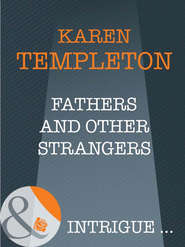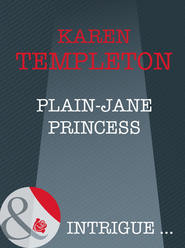По всем вопросам обращайтесь на: info@litportal.ru
(©) 2003-2024.
✖
Husband Under Construction
Автор
Год написания книги
2018
Настройки чтения
Размер шрифта
Высота строк
Поля
Nodding, Charley hoisted himself to his feet again and crossed the few steps to the bathroom, while Noah tried to snag Roxie’s attention again, hoping she’d give him a clue as to what was going on. No such luck.
“Mae picked out that tile when we moved in,” Charley said, then gave a little laugh. “Said the pink was kind to her complexion…” He grasped the door frame, clearly trying to pull himself together. “She would’ve been beside herself, though, that I’d let the place slide so much, and that’s the truth of it. Should’ve seen to at least some of it long ago. But…”
Noah came up behind him to clamp a hand on Charley’s shoulder. “But change is scary, I know. Sometimes even when you want it—”
“Charley?”
Both men turned to look at Roxie, whose smile seemed a little too bright. “What’s Mae saying about this?”
Charley sighed. “That I’m being a damn fool.”
“And…?” Roxie prompted.
Flummoxed, Noah watched Charley tilt his head, his eyes closed for several seconds before he opened them again. “She says to tell Noah to get going on that estimate. So I guess, since I never refused my wife anything while she was alive, no sense in starting now.”
Dear Lord.
Roxie walked Noah downstairs and to the front door, her arms crossed like she was deep in thought.
“Hey. You okay?”
“What? Oh. Yes.” Finally her eyes lifted to his, but almost as if she was afraid of what she’d see there. “Thank you.”
“For what?”
She smiled slightly. “For blowing my preconceived notions all to hell.”
Noah mulled that over for a second or two, then said, “I guess I’ll get back to you in a few days, then.”
“Sounds good,” she said, opening the front door to a landscape a whole lot whiter than it’d been a half hour ago. Noah stopped, shoving his hands in his pockets. “I take it you humor the old man about hearing his wife?”
That got a light laugh and a shrug. “Who am I to decide what he does and doesn’t hear?” Stuffing her fists in her sweatshirt’s front pouch, she squinted at the snow. “Be careful, it looks pretty slippery out there.”
The door closing behind him, Noah tromped down the steps, thinking the pair of them were crazy as loons, and that was the God’s honest truth.
Through the leaky window, Charley watched until Noah was out of sight before turning to face his niece, up to her elbows in one of the moving boxes they’d hauled out of the garage he hadn’t been able to park in since 1987. The way Mae’s “collections” had clearly gotten out of hand was pretty hard to swallow. That he’d become an ornery old coot who’d hung on to his wife’s stuff every bit as tenaciously as she had, just because, was even harder.
However, Noah’s eyeing Roxie as if she was a new item on the menu at Chili’s and he hadn’t eaten in a week? That was seriously annoying him. Whether she returned his interest he couldn’t tell—the girl never had been inclined to share her feelings with Charley, anyway, which he’d been more than okay with until now. But as close as he was to the boy’s folks, and as much as he thought the world of Gene’s and Donna’s other boys, his Roxie deserved far better than Noah Garrett.
“I don’t imagine I have to tell you to watch out for that one.”
Seated on the brick-colored, velvet sofa—definitely Mae’s doing—Roxie glanced up, the space between her brows knotted. “That one?”
“Noah.”
With a dry, almost sad laugh, she shook her head and dived back into the box. “No, you certainly don’t.”
“Because you know he’s—”
“Not my type.”
“Well. Yeah. Exactly.”
She straightened, a tissue paper-wrapped lump in each hand and a weird half smile on her face. Her let’s-pretend-everything’s-fine-okay? look. “So, nothing to worry about, right?”
Charley yanked his sleeve hems down over his knuckles, the icy draft hiking up his back reminding him how much weight he’d lost this past year. Even he knew he looked like an underfed vulture, bony and stooped and sunken-cheeked. That seriously annoyed him, too.
“Glad we’re on the same page, then,” he muttered, winding his way through the obstacle course into the kitchen for a cup of tea—what did he care if the color scheme was “outdated,” whatever the heck that meant?—thinking maybe he should get a cat or something. Or a dog, he thought, waiting for the microwave to ding. Lot to be said for a companion who didn’t talk back. Besides, he’d read somewhere that pets were good for your blood pressure.
As opposed to busybody nieces, who most likely weren’t.
Dunking his twice-used tea bag in the hot water, Charley watched her from the kitchen door. He loved the girl with all this heart, he really did, but being around her made him feel as if he was constantly treading in a stew of conflicting emotions. Some days, when the loneliness nearly choked him, he was actually grateful for her company; other days her energy and pushiness made him crazed.
More than that, though, he simply didn’t know what to say to her, how to ease her pain while his own was still sharp enough to scrape. That’d been Mae’s job, to soothe and heal. To act as a buffer between them. Not that Rox was a moper, thank goodness, but every time he looked at her, there it was, his own hurt mirrored in eyes nearly the same weird green as Mae’s. And at this point the helplessness that came with that had about rubbed his nerves raw.
Especially compounded with her being constantly on his back to clear out Mae’s stuff, to “move on” with his life. As if he had someplace to go. Even as a kid, Charley had never liked being told what to do, whether it was in his best interests or not. Like now. Because, truthfully? What earthly use did he have for all of Mae’s collections? Yet part of him couldn’t quite let go of the idea that getting rid of it all would be like saying the past forty years had never happened.
He turned back to the counter to dump three teaspoons of sugar in his tea, a squirt of juice from the plastic lemon in the fridge. Then, the mug cupped in his hands, he meandered back into the living room, where the glass-topped coffee table was practically buried underneath probably two dozen of those anemic-looking ceramic figurines Mae’d loved so much. Things looked like ghosts, if you asked him. “What’d you say that stuff was again?”
“Lladro,” Roxie said, gently setting another piece on table, next to a half dozen others. “From Spain. Mostly from the sixties and seventies.” She sat back, giving him a bemused look, the spunk in those grass-colored eyes at such odds with the sadness. “Let me guess—you don’t recognize them.”
“Sure I do,” he lied, sighing at his niece’s chuckle. “I was putting in long hours at work back then, I didn’t really pay much attention.”
“There’s probably a hundred pieces altogether.”
He’d had no idea. “You’re kidding?”
Her curls shivered when she shook her head. “Even though the market’s pretty saturated with Lladro right now, some of the pieces could still bring a nice chunk of change from the right buyer. Mae collected some good stuff here.”
“And some not so good stuff?”
She pushed a short laugh through her nose. “True. Not sure what the demand is for four decades’ worth of TV Guide covers, or all those boxes of buttons—although some crafter might want them. Or the Happy Meal toys. But this—” She held up another unwrapped piece. “This I know. This we can sell.”
Over the pang brought on by that word “sell,” Charley felt a spurt of pride, too. Maybe the girl drove him bonkers, but she was damn smart. And knowledgeable, like one of those appraisers on Antiques Roadshow, which Charley realized he hadn’t watched since Mae’s passing. And for sure, Roxie’s talents were wasted in some fly speck of a village in northern New Mexico. Child needed to be someplace where she could put all that education and experience to good use.
Then he could get back to living on his own, which he’d barely gotten used to when Roxie returned and tossed everything ass over teakettle.
He leaned over and picked up one of the pieces, the flawless surface smooth and cool against his hand. “Getting any messages from Mae?” Roxie asked, a smile in her voice.
Charley set the piece back down, then took a long swallow of his tea. “Do whatever you think best,” he said, feeling a little piece of himself break off, like a melting iceberg.
Although the fact was, Mae had told him before she died to sell the whole shebang, put the money into an annuity. It was him who was resisting, not Mae. Who didn’t really speak to him, of course. Even if he sometimes wished she did. Lord, what he’d give to hear her laughter again.
The pretense hadn’t even been a conscious decision, really. Just kind of happened one day when Roxie had been bugging him about packing up Mae’s clothes, and Charley, growing increasingly irritated, heard himself say, “Mae wouldn’t want me to do that,” and Roxie’d said, “What?” and he said, “She told me not to get rid of her things yet,” and Roxie had backed right off, much to Charley’s surprise.
Charley supposed it was his subconscious stumbling upon a way to make Mae the buffer again. Not that he was entirely proud of using his dead wife in this manner, but if it got Roxie off his case? Whatever worked. And that way it wasn’t him changing his mind, it was Mae.
Long as he didn’t carry things too far. Dotty was one thing, incompetent another. Fortunately the hospice social worker—who Roxie’d contacted without his say-so—had reassured her it wasn’t uncommon for the surviving spouse to imagine conversations with the one who’d gone on, it was simply part of the grieving process for some people, it would eventually run its course and she shouldn’t become overly concerned.











